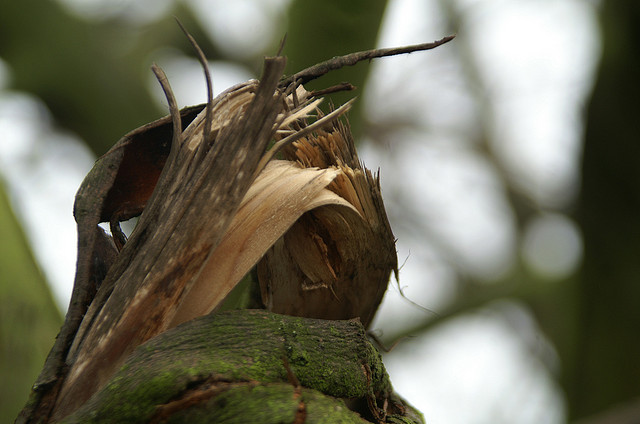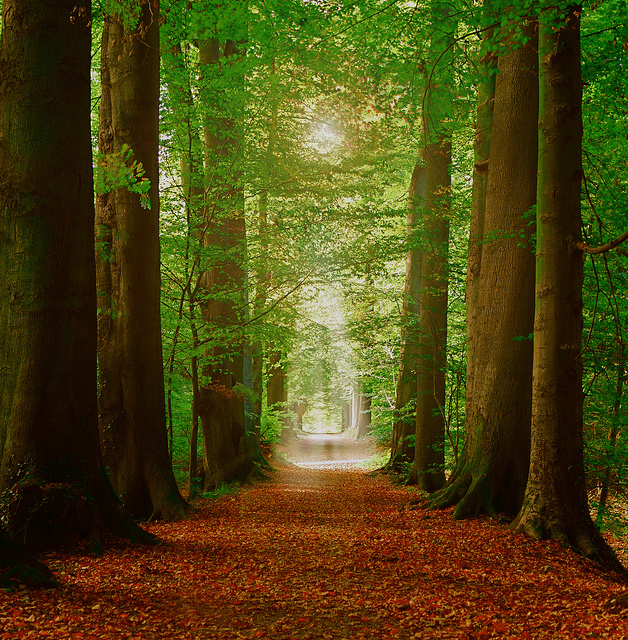The Truth of What Was
I was never completely committed to ADF. I didn’t finish the Dedicant Path because I was unwilling to speak out loud the final Oath. I wasn’t willing to make that kind of commitment to Paganism, or — more specifically — that significant a renouncement of my Christianity.
There were plenty of people in ADF who could see this. The leadership in the ADF Mother Grove was divided on whether or not I should be allowed to create the Solitary Druid Fellowship, not so much because they didn’t think it was a good idea but because they did not think that I was necessarily the right person to execute it. It hadn’t proved myself to the community.
At the time when I learned of their hesitation I was resentful. I thought they weren’t being progressive enough. I thought they were slow-moving, unimaginative. I thought a whole host of things that placed judgement on them. I still think that ADF moves unnecessarily slowly about certain things, but that isn’t the point. They were right. They saw something in me that I was unable to see. I was not the right man for this, and not because I couldn’t create it but because I wasn’t in it for the long haul.
You know, I almost left ADF just before the launch of the Fellowship. There was a moment when the Mother Grove questioned my investment in ADF, and I almost left. I almost took the Fellowship with me, too. I’d registered the domain, I’d reserved the Twitter handle, I’d done all of the legwork in building a website and conceiving of how the liturgical model would function. I had this moment when I realized that I didn’t really need ADF to do this.
But leaving would have created yet another splinter Pagan group, this one in my own image, and I didn’t want to do that.
The Truth of What Is
I had a moment a few days ago — during church, actually — when I said to myself,
“But I was already claimed by a God. I am already His.”
It was an unusual thing for me to think. It’s not a way I ever talked about God when I was a practicing Christian, and it was also the kind of language I heard from hard polytheists that made me a little uncomfortable. That idea of being claimed always felt a little dangerous to me.
But I thought it. It made sense. It felt true.
I have been changed by my time with ADF. I can’t deny that. I have different ideas about divinity now. I’ve come to recognize, even more so than I already believed, that there are many, many ways for people to live out a meaningful spiritual life. I trust that there are some people in ADF, and in Paganism in general, who came to some Pagan tradition and thought, “This! This makes sense in my soul! This is where I belong!”
The truth of the matter is that I had that very feeling when I was in church this past weekend.
This makes sense to my soul. This is the system in which I feel most comfortable, in which I find the most richness, wherein I think there is the most room for me to grow. There is a place here for a reverence of nature. There is a place here for compassion. There is a place here to acknowledge the fullness of life, and the nuances and complexities of morality, and the gale force power of Grace. I am willing to accept that I don’t understand all there is to know about divinity, and that the Gods that other people worship — some of whom have touched my life in an immediate way — are real in ways that are mysterious to me. But when it comes down to it I’m experiencing a simple call to return to the place from which I came.
And you have to go where you feel called.
The Truth of What Is to Come
I read these words last night. They come from what The Contemplative Life website said was the most famous of Thomas Merton’s prayers:
“My Lord God, I have no idea where I am going.
I do not see the road ahead of me.
I cannot know for certain where it will end.”
This is how I feel right now.
The prayer goes on to say:
“Nor do I really know myself, and the fact that
I think I am following Your will does not mean that I am
actually doing so. But I believe that the desire to please You
does in fact please you. …
Therefore I will trust You always though I may seem to be lost
and in the shadow of death.
I will not fear, for You are ever with me,
and You will never leave me to face my perils alone.“
This last bit is all I can really hold onto right now. I can’t quite wrap my mind around whether or not I think that my desires to please the divine really earn me any good favor. That logic, like the idea of being claimed, feels strangely transactional and human-shaped.
But trusting in some kind of Unfolding — that is about all I can hold onto right now.
The words from Imbolc, “I keep vigil to the fire in my heart,” have always represented to me that some part of the divine was with me always, an inextricable part of me. I’ve always held that belief.
So I shall seek to continue to tend that fire, trusting that I am not alone.

